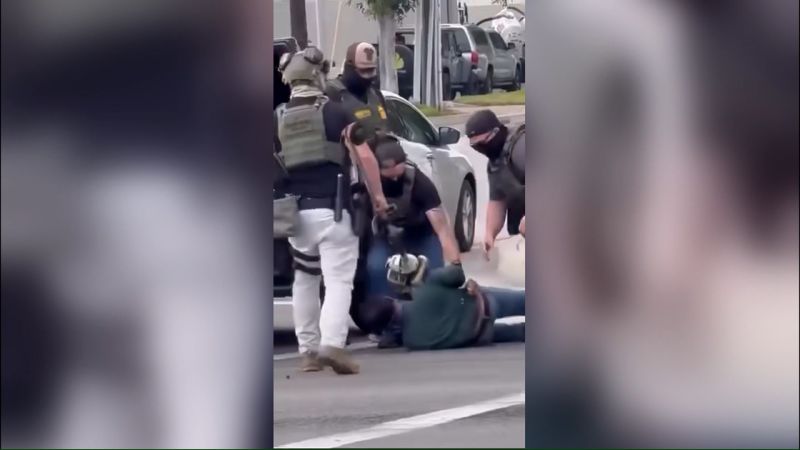ICE Arrest of Marine Veterans' Father Sparks Controversy

Federal agents' detention methods questioned by family and local officials
Narciso Barranco, father of three Marines, was detained by Border Patrol agents while working as a landscaper in Santa Ana, California. The Department of Homeland Security reported that Barranco, an undocumented immigrant from Mexico who has lived in the US since the 1990s, was arrested after allegedly attempting to evade law enforcement. Video footage of the incident shows masked agents in tactical gear restraining Barranco, with conflicting accounts about whether he threatened officers with landscaping equipment.
Alejandro Barranco, a Marine Corps veteran and son of the detained man, expressed disappointment following his father's arrest. He stated that his father has no criminal record and has consistently provided for his family, including three sons who have served or are currently serving in the US Marine Corps. The family has established a fundraising campaign to secure legal representation for Narciso Barranco, who remains in Immigration and Customs Enforcement (ICE) custody.
KEY POINTS
- •Father of Marines arrested by ICE
- •Conflicting accounts of the arrest
- •Family seeks legal representation
The incident occurs amid ongoing immigration enforcement operations under the Trump administration, which has included workplace raids targeting undocumented immigrants. Federal officials defended the arrest, stating Barranco resisted commands and fought against being handcuffed. The practice of agents wearing masks during operations has drawn criticism from various quarters, though ICE Acting Director Todd Lyons has stated the measure is intended to protect officers and their families from potential harassment.
Santa Ana Council Member Johnathan Hernandez criticized the enforcement action, describing it as traumatizing to the local community. He expressed concern about the treatment of immigrant workers who contribute to the economy, particularly those with family members serving in the military. The incident highlights ongoing tensions surrounding immigration enforcement policies and their implementation in communities with significant immigrant populations.
The case raises questions about immigration enforcement priorities and procedures, particularly regarding individuals with family members serving in the US military. Alejandro Barranco suggested that family members of military personnel should have improved pathways to legal status. The incident has drawn attention to the methods used by federal agents during immigration enforcement operations and their impact on immigrant communities.